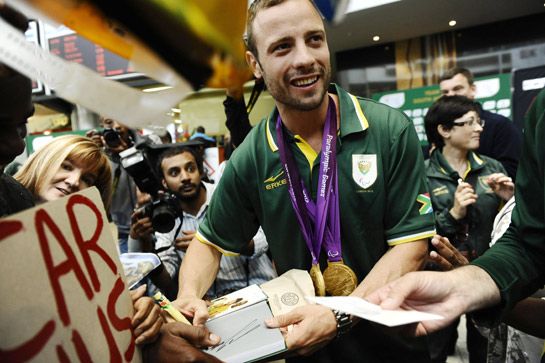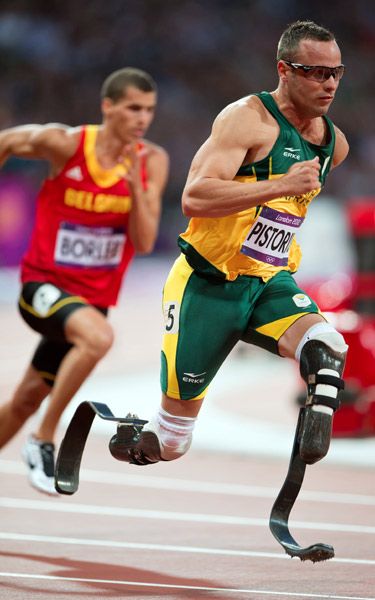After a race was over and other athletes were heading home, Oscar Pistorius would linger in the press pit.
The famed South African Paralympian never seemed to tire of answering questions from journalists and smilingly posing for pictures.In his glory days the unfailingly upbeat message from the gold medal-winning athlete was that his disability was just an irritation that could be overcome with true grit and a positive outlook.
Since February 14, 2013, the media have shadowed his every move for another reason – the shooting of his girlfriend Reeva Steenkamp, whom Oscar mistook, he says, for a burglar, feeling threatened because of his disability. The case, which will draw to a conclusion with the judge's verdict on Thursday 11, September, has fascinated the world.
From an early age his parents encouraged a no-nonsense approach to the hand nature had dealt him. He often repeated his mother Sheila's instructions to him and his older brother Carl before they went out to play."'You, put your shoes on. And you, put your legs on.' That was disability as I saw it," he said.
A huge influence on him, Sheila died from an allergic reaction when he was 15, never to see her son's heyday or witness the lows of the last year. Her date of birth and death are tattooed on his arm.
Born without fibula in either legs, Oscar had both lower limbs amputated at 11 months.
His parents wrote their son a letter, to read in later life explaining their decision, which read "a loser isn't the person that gets involved and comes last, but the one who doesn't get involved". The text was another often quoted part of Oscar's story.
Doctors told his parents that the operation would be less traumatic before their son learned to walk.
When he injured himself while playing rugby, track activities were recommended as part of his rehab process.
London 2012 was also significant because he won a battle to be allowed to compete against able-bodied athletes. The South African star made it all the way to the semi-finals of the 400metres and the image of him swapping race numbers with world champion Kirani James became one of the defining moments of the Games.
At two years old he was given prosthetic limbs and mastered using them in days. He went on to play water polo and rugby.
The Blade Runner had found his metier. Aged 17, he won gold at the Sydney Olympics. More golds followed at the 2008 and 2012 Games.
His stellar trajectory brought financial rewards too, earning him sponsorship deals worth well over £645,000 per year.
Together with Reeva, who was a model, lawyer and reality TV show contestant, he was one half of South Africa's golden couple.She described herself on Twitter as: "SA Model, Cover Girl, Tropika Island of Treasure Celeb Contestant, Law Graduate, Child of God".
To her friends and family she was "an angel" and "the "kindest and sweetest human being". In the past year, the world-famous athlete has faced the herculean challenge of convincing fans and the court that her death was a terribly tragic accident.


